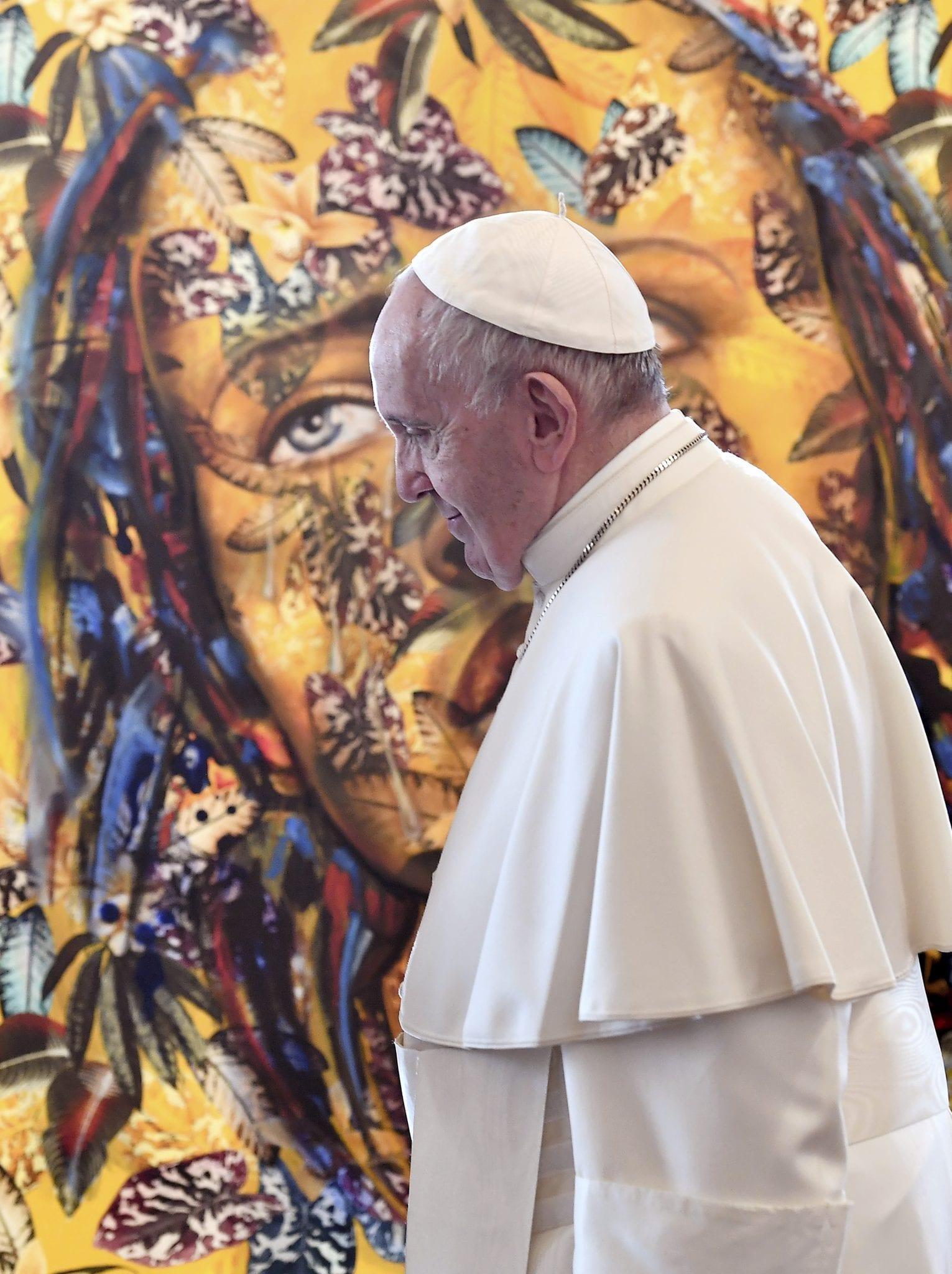ROME – Pope Francis on Saturday noted that God’s priority is the “salvation of all,” and urged all Christian communities to leave partisanship aside and open themselves to “the good of all,” much like God took flesh to embrace the whole human race and died for the salvation of all.
Among Christians, he said, “each community has a gift to offer to the others. The more we look beyond partisan interests and overcome the legacies of the past in the desire to move forward towards a common landing place, the more readily we will recognize, welcome and share these gifts.”
Francis’s words came as he led a prayer vigil closing the International Week of Prayer for Christian Unity in Rome’s Basilica of St. Paul Outside the Walls. Present at the ceremony were representatives of the Ecumenical Patriarchate of Constantinople, the Anglican Church of England, and other Christian denominations.
The pontiff pointed out that even the most “weak and vulnerable” communities that “have little to offer materially but find their wealth in God,” have a role in the ecumenical journey towards Christian unity. Among them, he highlighted those who are persecuted for their faith in Christ.
Earlier in the day, Francis met with President Barham Saleh of Iraq. According to a statement, a major focus of the meeting was the protection of Christian minorities in the country.
However, the pope didn’t mention any specific country during his remarks on Saturday evening.
“Let us think of Christian communities: Even the smallest and least significant in the eyes of the world, if they experience the Holy Spirit, if they are animated by love for God and neighbor, have a message to offer to the whole Christian family,” he said.
RELATED: Vatican urges visiting Iraqi president to protect Christians
“Let us think of marginalized and persecuted Christian communities,” Francis continued, saying that it’s “often the weakest who bring the most important message of salvation. This was what pleased God: To save us not with the power of this world, but with the weakness of the cross.”
Those who follow Jesus, Francis said, cannot fall into the temptation of being attracted by “worldly logic,” and should instead “listen to the small and the weak, because God loves to send his messages through those who most resemble his Son made man.”
Most of the pope’s homily turned around a passage of the Gospels that tells the story of the ship that brought Saint Paul to Rome as a prisoner. Three sorts of people were in that boat, Francis said: The “powerful” ones, who were the soldiers under a centurion; then there were the sailors, on whom the safety of the travellers depended; and lastly, there were the prisoners of the empire, who were the “weakest and most vulnerable.”
Amidst a storm, the group feared sinking, and the apostle, inspired by an angel, had a reassuring message of hope, which in the end led the centurion to spare his life.
Once they landed at Malta, Francis said, “they experienced the hospitality, kindness and humanity of the island’s inhabitants. This important detail provided the theme of the Week of Prayer that concludes today.”
The theme was “They Showed Us Unusual Kindness,” taken from the Book of the Apostles.
Francis said that the account of the Acts of the Apostles “also speaks to our ecumenical journey towards that unity which God ardently desires. In the first place, it tells us that those who are weak and vulnerable, those who have little to offer materially but find their wealth in God, can present valuable messages for the good of all.”
The passage also serves as a reminder of the fact that God’s priority is for all to be saved, which the angel had promised Paul: Safety to all those who were sailing with him.
“If we, with his grace, can assimilate his way of seeing things, we can overcome our divisions. In Paul’s shipwreck, each person contributed to the salvation of all: The centurion made important decisions, the sailors put to use their knowledge and abilities, the Apostle encouraged those without hope.”
Once again highlighting the centrality of hospitality, he said that it’s a call to be more welcoming towards all, including those from different confessions, and it’s something that belongs to the tradition of all Christian communities and families.
The Week of Prayer for Christian Unity was established in 1908 by Episcopalian Paul Watson. In 1968, the Catholic Church officially joined the initiative.
Follow Inés San Martín on Twitter: @inesanma
Crux is dedicated to smart, wired and independent reporting on the Vatican and worldwide Catholic Church. That kind of reporting doesn’t come cheap, and we need your support. You can help Crux by giving a small amount monthly, or with a onetime gift. Please remember, Crux is a for-profit organization, so contributions are not tax-deductible.














